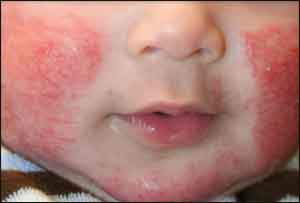- Home
- Editorial
- News
- Practice Guidelines
- Anesthesiology Guidelines
- Cancer Guidelines
- Cardiac Sciences Guidelines
- Critical Care Guidelines
- Dentistry Guidelines
- Dermatology Guidelines
- Diabetes and Endo Guidelines
- Diagnostics Guidelines
- ENT Guidelines
- Featured Practice Guidelines
- Gastroenterology Guidelines
- Geriatrics Guidelines
- Medicine Guidelines
- Nephrology Guidelines
- Neurosciences Guidelines
- Obs and Gynae Guidelines
- Ophthalmology Guidelines
- Orthopaedics Guidelines
- Paediatrics Guidelines
- Psychiatry Guidelines
- Pulmonology Guidelines
- Radiology Guidelines
- Surgery Guidelines
- Urology Guidelines
Strange case of dimorphic skin rash in patient of cirrhosis : BMJ Case Report

A middle-aged man with decompensated cirrhosis and a dimorphic multisite skin rash is diagnosed with rare atypical herpes simplex infection, manifesting Sweet’s syndrome (SS) in the absence of other described associations.
Sweet's syndrome is a rare skin condition. Its main signs include fever and painful skin lesions that appear mostly on your arms, neck, head and trunk.The exact cause of Sweet's syndrome isn't known.
SS, an acute febrile neutrophilic dermatosis, has three common forms—
- classical or idiopathic,
- malignancy associated and drug induced.
- Systemic autoimmune, connective tissue diseases and infections are also strong associations.
The latter is commonly described in Gram-positive bacteria, salmonellosis and Yersinia. Herpes infections are a rare cause of SS, reported only thrice in literature, one with concomitant lupus, the second with associated mycobacterial infection and third, in metastatic breast disease in contrast to our patient. Atypical rash, especially if dimorphic, warrants histopathological evaluation to confirm underlying disease.
Sweet's syndrome is uncommon, but certain factors increase your risk, including:
- Sex. In general, women are more likely to have Sweet's syndrome than are men.
- Age. Though older adults and even infants can develop Sweet's syndrome, the condition mainly affects people between the ages of 30 and 60.
- Cancer. Sweet's syndrome is sometimes associated with cancer, most often leukemia. Sometimes, Sweet's syndrome may be associated with a solid tumor, such as breast or colon cancer.
- Other health problems. Sweet's syndrome may follow an upper respiratory infection, and many people report having flu-like symptoms before the rash appears. Sweet's syndrome can also be associated with inflammatory bowel disease.
- Pregnancy. Some women develop Sweet's syndrome during pregnancy.
- Drug sensitivity. Sweet's syndrome may result from a sensitivity to medication. Drugs linked to Sweet's syndrome include azathioprine (Azasan, Imuran), granulocyte colony stimulating factor, certain antibiotics and some nonsteroidal anti-inflammatory drugs.

Disclaimer: This site is primarily intended for healthcare professionals. Any content/information on this website does not replace the advice of medical and/or health professionals and should not be construed as medical/diagnostic advice/endorsement or prescription. Use of this site is subject to our terms of use, privacy policy, advertisement policy. © 2020 Minerva Medical Treatment Pvt Ltd